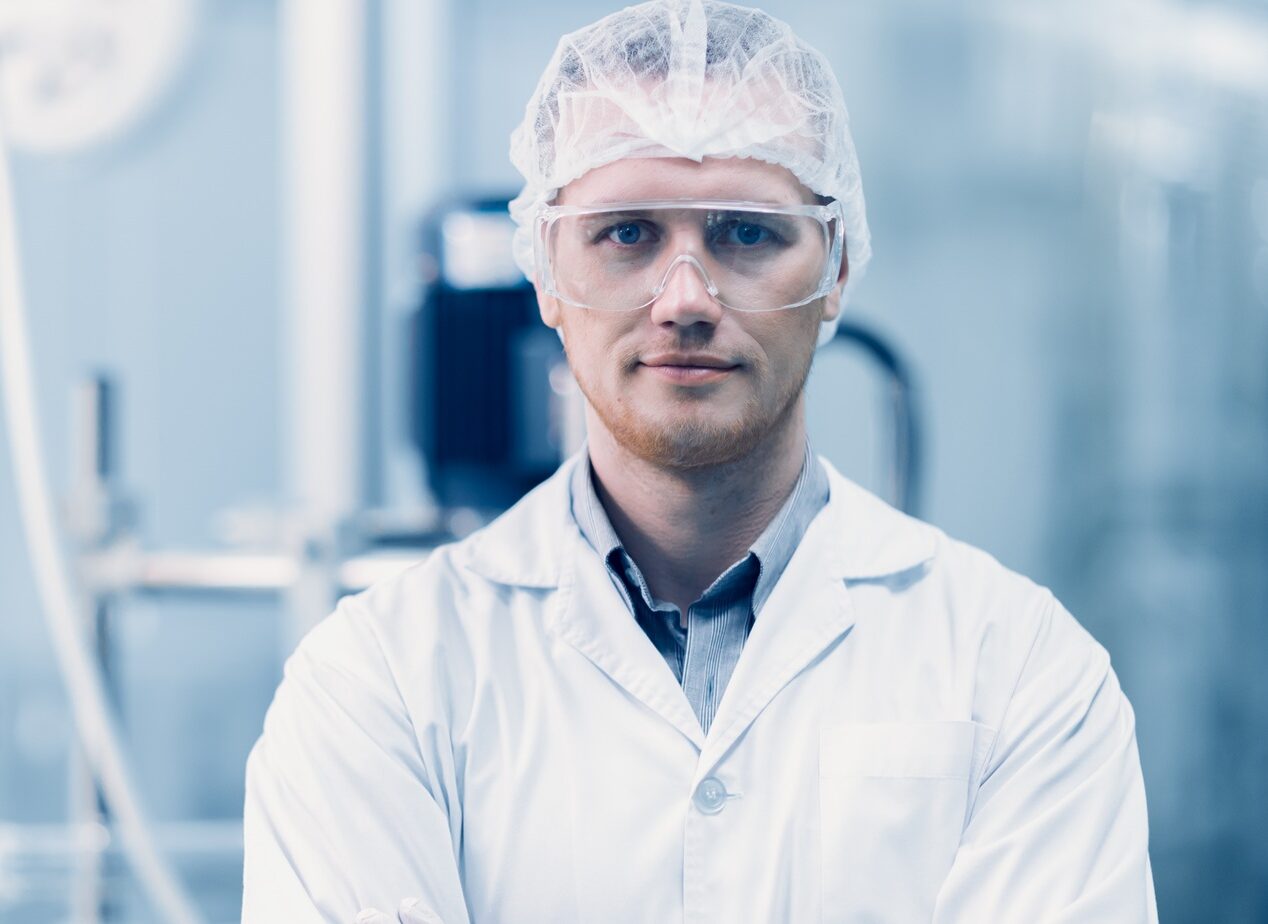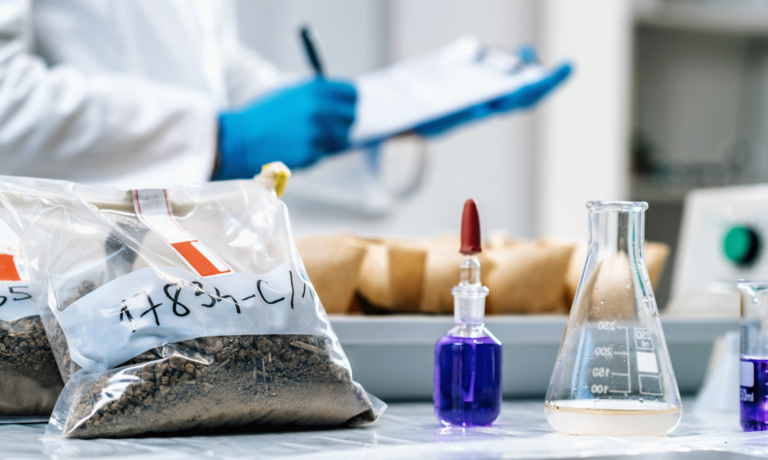
Biological raw materials are used in medicines, vaccines, and lab tests. They must be pure, safe, and high quality. If they are not, the final product may not work. Many companies face challenges in making and testing these materials. Mistakes can lead to waste, high costs, and safety risks.
AI and automation help solve these problems. AI makes production faster and more accurate. It checks materials at every step to ensure they meet quality standards. AI also reduces human errors and improves safety. More companies are using AI to make better biological raw materials.
This article explains how AI improves manufacturing and quality control. It also explores the benefits, challenges, and future of AI in this industry.
How AI Helps in Manufacturing Biological Raw Materials
Manufacturing biological raw materials is a complex process. These materials must be pure, safe, and consistent. Small mistakes can cause big problems. AI helps make production faster, more accurate, and efficient.
1. AI Monitors and Controls Manufacturing Conditions
Biological raw materials need the right environment to grow. Temperature, humidity, and nutrients must stay at the right levels. If conditions change, the materials may not be useful. AI tracks these factors in real time. It adjusts settings to keep everything stable. This improves quality and reduces waste.
2. AI Improves Cell Growth and Bioprocessing
Cells and proteins are important biological materials. They are used in medicines, vaccines, and lab tests. AI helps grow these materials in the best way. It checks cell health and provides the right nutrients. AI can also predict problems and fix them before they happen. This makes sure the final product is strong and effective.
3. AI Detects Contamination and Reduces Waste
Contamination is a big problem in biological material production. If a batch gets contaminated, it must be thrown away. This wastes time and money. AI scans for harmful particles or bacteria. It finds problems fast and helps stop contamination. This keeps materials safe and saves resources.
4. AI Reduces Human Errors
People can make mistakes when making biological materials. These mistakes can cause delays and quality issues. AI follows strict rules and checks every step. It ensures accuracy and reduces failed batches. This helps companies produce better materials with fewer problems.
AI makes biological raw material production faster, safer, and more cost-effective. It helps companies improve quality and reduce risks. More businesses are using AI to meet high industry standards.
AI in Quality Control for Biological Raw Materials
Quality control (QC) ensures biological raw materials are safe and effective. Even small mistakes can cause big problems. AI makes QC faster, more accurate, and reliable. It helps detect defects, improve testing, and ensure consistency.
1. AI Finds Defects Quickly
Traditional quality checks take time and may miss small defects. AI-powered machines inspect materials in real time. They scan samples and find tiny issues that humans may not see. This helps fix problems early and ensures high-quality materials.
2. AI Predicts Quality Issues Before They Happen
AI studies past production data to find patterns. It can predict when quality problems may occur. This allows companies to take action before issues arise. Predicting problems helps reduce waste and improves efficiency.
3. AI Speeds Up Testing
Testing biological materials is important but can take a long time. AI speeds up this process by analyzing data in seconds. It provides fast and accurate results, reducing delays. Companies can release safe products more quickly.
4. AI Ensures Consistency in Every Batch
Biological materials must be the same in every batch. Even small changes can make them unusable. AI ensures production follows strict guidelines. It checks every batch to confirm consistency. This reduces product failures and ensures safety.
AI is improving quality control by making testing faster and more accurate. It helps companies detect defects, predict problems, and maintain high standards. This leads to safer and more reliable biological raw materials.
Benefits of AI in Biological Raw Material Production
AI brings many benefits to manufacturing and quality control. It helps companies produce better materials while saving time and money. AI also improves safety and reduces waste.
1. AI Saves Time
AI automates many tasks that take humans longer to complete. It monitors production, checks quality, and detects problems in real time. This reduces delays and speeds up the process. Companies can make more materials in less time.
2. AI Reduces Waste
Producing biological raw materials can be expensive. If a batch fails, it must be thrown away. AI helps prevent failures by finding problems early. This reduces waste and saves resources.
3. AI Improves Safety
Biological materials must be free from harmful substances. AI scans for contamination and defects before they reach the market. This helps protect people who use medicines and vaccines made from these materials.
4. AI Lowers Production Costs
AI helps companies avoid mistakes that lead to costly waste. It also reduces the need for manual work, saving labor costs. Companies can produce high-quality materials at a lower cost.
AI makes manufacturing more efficient, safe, and cost-effective. Companies that use AI can produce better biological raw materials while reducing risks and expenses.
Challenges of Using AI in Manufacturing
AI is helpful, but some companies face challenges when using it. They must solve these problems to get the best results.
1. High Initial Costs
Setting up AI systems requires money. Companies need special equipment, software, and trained workers. While AI saves money in the long run, the initial cost can be high. Businesses must plan their budgets carefully before investing in AI.
2. Need for Skilled Workers
AI tools need experts to manage them. Workers must understand how to use AI for production and quality control. Some companies may struggle to find trained employees. Businesses must invest in training programs to help workers learn AI skills.
3. Data Security Risks
AI collects and stores large amounts of data. This data must be protected from hackers and cyber threats. Companies need strong security systems to keep their information safe. Following strict data protection rules helps prevent leaks or misuse.
4. Fear of Job Loss
Some workers worry that AI will replace them. AI does not take jobs—it helps workers do their tasks better. AI handles repetitive work, so employees can focus on more important tasks. Companies must explain how AI improves work instead of replacing workers.
AI has many benefits, but companies must overcome these challenges. By solving these problems, businesses can fully use AI to improve biological raw material production.
Real-World Examples of AI in Action
Many companies use AI to improve biological raw material production. These examples show how AI is making a difference.
1. AI-Powered Quality Control in Biotech Companies
Large companies like Pfizer and Roche use AI for quality control. AI detects contamination and defects in raw materials before they reach production. This ensures that medicines and vaccines meet high safety standards.
2. AI in Cell Growth and Bioprocessing
AI helps in growing cells and proteins for medical research. AI-powered bioreactors monitor growth conditions. They adjust temperature, nutrients, and oxygen levels to keep cells healthy. This reduces failed batches and improves success rates.
3. AI in Supply Chain Management
AI predicts when companies will need more raw materials. It helps prevent shortages and delays. AI also finds the best suppliers and tracks shipments in real time. This makes supply chains more reliable and cost-effective.
4. AI for Reducing Errors in Labs
Labs use AI to check test results and find errors before they cause problems. AI-powered software scans large data sets quickly. It helps scientists identify patterns and improve accuracy in research.
These examples show how AI is helping companies improve safety, efficiency, and quality in biological raw material production. More businesses are adopting AI to stay competitive and meet industry standards.
The Future of AI in Biological Raw Material Manufacturing
AI is improving every year. In the future, AI will make production even smarter and more efficient. It will help companies create better biological materials at lower costs.
1. AI-Driven Factories
Factories will use AI to control all steps of production. Machines will learn from past mistakes and improve on their own. AI will adjust processes in real time, reducing errors and increasing efficiency.
2. AI in Personalized Medicine
AI will help develop custom treatments for patients. Doctors will use AI to create medicines designed for individual needs. This will improve healthcare and make treatments more effective.
3. AI for Safer Biological Materials
AI will improve safety by detecting harmful substances before they reach the market. It will analyze data faster and find risks earlier. This will help protect public health.
4. AI in Green Biotechnology
AI will help reduce pollution in the biotech industry. It will find eco-friendly ways to produce biological raw materials. Companies will be able to make high-quality materials while protecting the environment.
AI will continue to change biological raw material manufacturing. Companies that invest in AI now will stay ahead of their competitors. AI will make production safer, faster, and more cost-effective. The future of AI in biotech is bright.
Why Companies Must Use AI Now
Companies that use AI gain a strong advantage. They can make better biological raw materials faster and at a lower cost. AI also helps businesses follow safety rules and avoid expensive mistakes.
AI improves manufacturing and quality control. It detects problems early, reduces waste, and speeds up production. Companies that delay using AI may struggle to compete with those that adopt it.
Investing in AI now helps businesses prepare for future changes. AI-driven factories, personalized medicine, and green biotechnology are the future. Companies that start using AI today will lead the industry tomorrow.
AI is not just a trend—it is a powerful tool that improves efficiency, safety, and quality. Businesses that embrace AI will produce better biological raw materials and stay ahead in the market. The future of biotech depends on AI and automation.
Conclusion
AI makes biological raw material production faster, safer, and cost-effective. It improves quality control, reduces waste, and ensures safety. AI helps companies stay competitive by detecting problems early and optimizing production.
Businesses using AI now will lead the future. AI-powered factories, personalized medicine, and green biotechnology will shape the industry. Companies that invest in AI today will produce better materials and reduce costs. AI is the key to efficient and high-quality biological raw material manufacturing.




